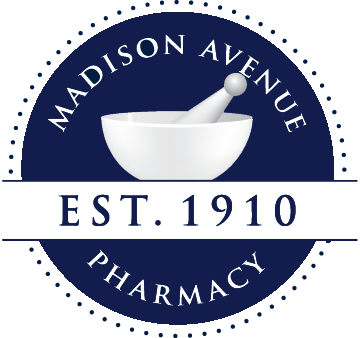Compounding

Compounding allows us to create custom medications specifically for you. Some of our more common compounded meds fall into these categories:
- Pain Meds
- Dermatology
- OB/GYN
- Podiatry
To learn more about our ability to customize your meds, contact us today at 937-323-1841 #3.
SEND US YOUR PROBLEMS… YOUR PROBLEM PRESCRIPTIONS, THAT IS!
- Bad Tasting Medicine?
- A pill too large to swallow?
- Struggle with cutting pills because it wasn't the right strength?
- Finally found the right medication but it becomes discontinued or back-ordered?
- Allergic to dyes, fillers, additives, gluten, etc, that comes in a prescribed medication?
- Have to take multiple medications and would prefer to take just one?
- Hormones are off and causing you a great deal of discomfort?
WE CAN HELP!!!
What Is Compounding?
Pharmacy compounding is the art and science of preparing customized medications for patients. Its practice dates back to the origins of pharmacy, although compounding’s presence in the pharmacy profession has changed over the years. In the 1930s and 1940s, the majority of prescriptions were compounded. With the advent of mass drug manufacturing in the 1950s and ’60s, compounding has declined as the pharmacist’s role as a preparer of medications quickly changed to that of a dispenser of manufactured dosage forms. However, this “one-size-fits-all” approach to medication meant that some patients’ needs were not being met.
Within the last few decades, however, compounding has experienced a renaissance as modern technology and innovative techniques and research have allowed more pharmacists to customize medications to meet a patients’ unique needs.
Does My Prescriber Know About Compounding?
Prescription compounding is a rapidly growing component of many practitioners’ practices, but some may not realize the extent of compounding, or get in touch with a compounding pharmacy – one that is committed to providing high-quality compounded medications in the dosage form and strength prescribed by the practitioner. Through the triad relationship of patient, prescriber, and pharmacist, all three can work together to solve unique medical problems.
What Kind Of Prescriptions Can Be Compounded?
Almost any kind! Compounded prescriptions are ideal for any patient requiring unique dosages and/or delivery devices. Compounding applications can include: bio-identical hormone replacement therapy; hospice; pediatric; pain management; dermatology; medication flavoring; neuropathy; veterinary; sports medicine; infertility; wound therapy; podiatry and gastroenterology.
Is Compounding Expensive?
Compounding may or may not cost more than conventional medication. Its cost depends on factors such as the type of ingredients and equipment required, plus the time the pharmacist spends researching and preparing the medication. Fortunately, compounding pharmacists have access to pure-grade quality chemicals which dramatically lower overall costs and allow them to be very competitive with commercially manufactured products.
Will Insurance Cover Compounded Meds?
Some insurance plans allow the patient to be reimbursed by sending in claim forms. While you may be paying the pharmacy directly for a compounded prescription, many insurance plans may cover the final cost.
Is Compounding Safe?
Compounding has been part of healthcare since the origins of pharmacy, and is widely used today in all areas of the industry, from hospitals to nuclear medicine. Over the last decade, compounding’s resurgence had largely benefited from advances in technology, quality control and research methodology. The Food and Drug Administration has stated that compounded prescriptions are both ethical and legal as long as they are prescribed and compounded by a licensed pharmacy. In addition, compounding is regulated by state boards of pharmacy.
